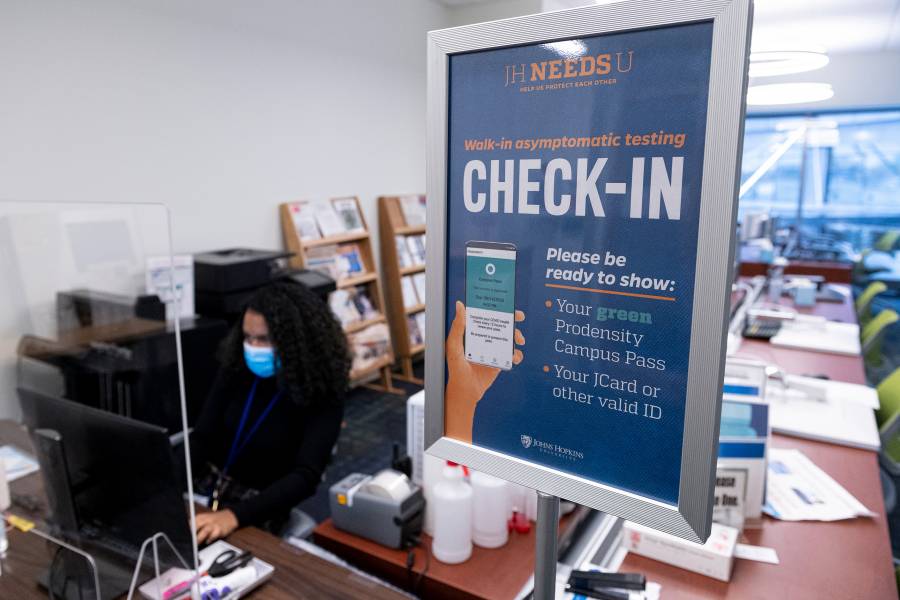Johns Hopkins University today announced that it is taking additional precautions to keep members of its community safe and limit the spread of the COVID virus as on-campus activity increases for the fall semester, including limiting the number of vaccines deemed allowable and developing plans to expand testing requirements.
The changes come amid a rise in COVID cases both locally and nationally and two weeks after the university announced that it was reinstating a universal indoor face-covering requirement for all individuals, regardless of their vaccination status.
To date, 95% of faculty and 92% of staff have submitted documentation that they have been fully vaccinated, university officials said; data on students will be forthcoming once they have returned to campus.
However, there are recent reports that certain vaccines may be less effective against the delta variant. As a result, and based on the recommendations of the Health Advisory Group, the university is limiting its list of acceptable vaccines to those granted Emergency Use Authorizations by the FDA—Pfizer-BioNTech, Moderna, and J&J/Janssen—all of which have demonstrated effectiveness against known variants.
The change exclusively affects international students and others who were vaccinated overseas with a vaccine authorized by the World Health Organization but not approved by the FDA. Those who have uploaded to the Vaccine Management System documentation of vaccination with Oxford/AstraZeneca, CoviShield, Novavax, Sinopharm, or Sinovac must be revaccinated—these individuals will be contacted directly and asked to schedule an appointment to receive one of the three authorized vaccines. The university will assist students in getting revaccinated if they need help.
New vaccinations must be completed and documentation uploaded to the Vaccine Management System by the beginning of October. Until fully vaccinated (two weeks after their final dose), those individuals are expected to be tested twice weekly, the same testing requirement that applies to those granted vaccination exceptions.
Additionally, the university developing plans to expand mandatory testing to facilitate early detection of COVID outbreaks; more information will be shared in the coming days. Currently, anyone on-campus who has an approved vaccination exception must be tested twice a week, and all vaccinated residential undergraduates must be tested once a week.
More information on testing locations—which are available on a voluntary basis for all students, postdoctoral fellows, faculty, and staff—can be found on the university's COVID Information website.
Anyone who exhibits COVID symptoms should call the Johns Hopkins COVID Call Center at 443-287-8500, seven days a week, between 7 a.m. and 7 p.m. The JHCCC will arrange for testing if needed and assist in transmitting information to Occupational Health or Student Affairs.
"As always, we are closely monitoring conditions, and both Johns Hopkins University and Johns Hopkins Medicine are evaluating additional precautions to further protect our community and our neighbors," Stephen Gange, professor and executive vice provost for academic affairs; Jon Links, professor, vice provost, and chief risk officer; and Jane Schlegel, vice president and chief administrative officer wrote today in a message to the JHU community. "We will keep you updated on any changes. Thank you for maintaining proper COVID safety practices throughout the pandemic and assisting us with preparing for a productive, rewarding, and healthy fall semester."
Posted in University News








